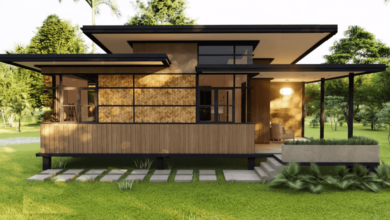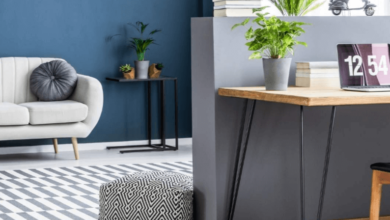Buying Guide: 6 Key Details to Choose the Perfect Oval Bathtub

Oval bathtubs, with their flowing curves and comfortable design, are becoming a top choice for modern bathrooms. However, products on the market vary greatly in materials and features. Choose wisely, and it’s a “relaxation haven”; choose poorly, and it becomes an underused piece of decor. This full-process guide—from identifying your needs to avoiding common pitfalls—will help you dodge 90% of buying mistakes and find the perfect tub for your home.
1. Define Your Needs First: 3 Core Considerations
Before purchasing, clarify your core needs to ensure a precise match and avoid paying for unnecessary features.
a. Space Planning: Match Size and Installation to Your Bathroom
Small bathrooms (≤86 sq. ft.):
Opt for a freestanding mini tub, around 4.5–5 ft long × 2.3–2.5 ft wide. No built-in platform needed—just place it in a corner. If your bathroom has sloped walls or unusual pipe layouts, you may need a custom-fit model (expect an extra 10%-30% cost).
Medium to large bathrooms (≥86 sq. ft.):
Choose a standard tub, around 5.2–5.6 ft long × 2.6–2.8 ft wide. Installation options are flexible—freestanding for a minimalist look paired with a floor-mounted faucet, or built-in for a seamless aesthetic (coordinate with your contractor for waterproofing and platform dimensions; allow at least 2 inches beyond the tub for installation).
Pro tip: Always leave at least 2 ft of walking space around the tub for everyday convenience.
b. Feature Planning: Basic vs. Advanced
Basic needs (quick soak, daily use):
Choose a plain tub without extra features, focus on smooth surfaces and efficient drainage, with a budget around $300–$750.
Advanced needs (stress relief, long-term use):
Consider additional core functions:
- Massage jets: Prefer pulse-style jets over bubble jets, 6+ jets targeting back, shoulders, and waist.
- Temperature control: Accurate within ±2°F to prevent sudden water fluctuations.
- Mood lighting: Adjustable LED strips (warm tones create a more relaxing vibe).
Advanced tubs typically cost $1,200–$2,500.
Warning: Avoid “feature-overload” tubs with nonessential tech like Bluetooth or TVs—they’re expensive and harder to maintain.
c. Budget Planning: Match Material to Value
Different materials vary in price, feel, and maintenance. Here’s a quick overview (for a 5 ft tub):
| Material | Price Range | Key Advantages | Best For |
| Acrylic | $300–$600 | Lightweight, easy maintenance, cost-effective | Renters, budget-conscious buyers |
| Cast Iron | $750–$1,200 | Excellent heat retention, durable (10+ years) | Homeowners, humid climates |
| Engineered Stone | $1,200–$2,500 | Premium feel, customizable colors | Luxury homes, design enthusiasts |
| Wood-Wrapped | $1,500+ | Natural warmth, unique style | Nature-inspired decor, buyers with strong maintenance habits |
2. Focus on Key Specs: 3 Details That Affect Experience
a. Tub Curve: Ergonomics Matter
Giving Tree Home oval tubs are ergonomically calculated—not “the rounder, the better.”
- Width curve: Shoulder and back support angle should be 110°–120°, following the spine’s natural curve. Test by lying down—focus on any gaps at the lower back.
- Length curve: Ensure enough legroom; for a 5 ft tub, foot-end width ≥18 in to accommodate users 5’5” and taller.
- Edge finishing: Rounded edges (radius ≥0.2 in) prevent injury, and thickness ≥4 in ensures stability.
b. Drain System: Hidden & Anti-Clog
Drainage is often overlooked but critical:
- Location: Side drains save space and reduce standing water; built-in tubs can use hidden drains for a sleek look.
- Anti-clog: Dual-layer strainer (hair + debris) with drain diameter ≥2 in ensures fast drainage.
- Test: 40 gallons should drain within 2 minutes.
c. Surface Finish: Smoothness Affects Cleaning
- Acrylic tubs: Should feel smooth, free of particles, and visually flawless. Water droplets should disperse evenly.
- Cast iron: Check glaze adhesion; no exposed metal, scratch lightly—no mark indicates quality glaze.
- Engineered stone: Seamless surface preferred; soy sauce or liquid test can indicate stain resistance.
3. Pitfall Warnings: 4 Common Traps
- Fake materials: Some “cast iron” tubs are steel coated with enamel (~50% lighter). Fake stone often has poor gloss and scratches easily.
- Misleading dimensions: Check internal length, width, and depth; allow ≤0.8 in deviation from specs.
- Hidden installation fees: Low-priced tubs may only include basic plumbing; platform, waterproofing, faucet may cost extra $30–$75 each. Confirm “all-inclusive” service and put in contract.
- After-sales support: Prefer local service centers to avoid cross-state repairs. Acrylic warranty ≥3 yrs, cast iron/stone ≥5 yrs, key components ≥2 yrs.
4. Buying Process: 5 Steps to Secure a Quality Tub
- Research: Screen 3–5 reputable brands (Kohler, TOTO, American Standard, Giving Tree Home or other top bathtub brands) and review negative feedback (leaks, coating issues, slow service).
- In-person testing: Lie down in the store to feel curves, edge comfort, drainage, and faucet flow.
- Confirm details: Ask for material certifications (Acrylic: ASTM D256; Cast Iron: ASTM A48).
- Service check: Verify installation scope, timeline, and support contact.
- Delivery inspection: Check packaging, dimensions, surface condition, and accessories (drain, overflow, manual).
Conclusion: Choosing the Right Tub Means Choosing the Right Relaxation
Selecting an oval bathtub is about matching your needs to the product. Small bathrooms shouldn’t go big, budget-conscious buyers shouldn’t chase unnecessary features, and material quality should not be compromised. Focus on four core aspects—size, material, curve, and drainage—and avoid pitfalls like fake materials, misleading dimensions, poor installation, and weak support.
The right oval tub transforms your bathroom into a “healing corner”, bringing comfort and relaxation to your everyday life. This guide helps you confidently choose a tub that will be your curved comfort zone for years to come.







